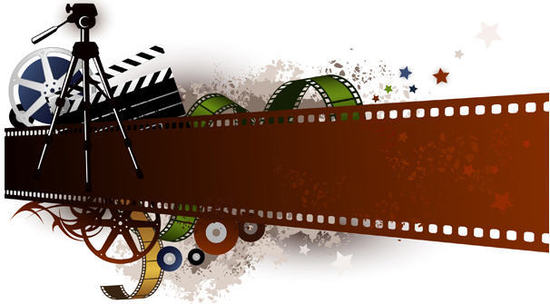By ...
While assessing the audience of the 1973 film Day for Night, mordant film critic Pauline Kael reached deep into her arsenal of coinages and hauled out "movie-struck. All claws retracted, my respect for film critics runs very deep, and I admit unreservedly to being one of the movie-struck. I share with the medium of cinema a history and ongoing relationship that, mind you, is the subject of a decidedly uncinematic life-story. As a greatly contradictory individual with a particular outlook on people and behaviour, I can attest to various powers of the cinema--to shape, to illumine, to influence, to move.
Before it welded me into a mess of contradictions, cinema was merely a cultural product that struck my fancy. My most prized possession as a young'un was a library of VHS tapes, and all of my allowances were spent on movie going. I could, for the sake of convenience, attempt to isolate an instance of revelation in which it became clear that film would be the greatest and most enriching passion of my young life, but like the film reel that breaks a celluloid moment up into a series of frames, that wouldn't be possible.
However, I can single out that epiphanic juncture at which film proved its worth as a mirror of people, their behaviour and their fundamental nature. In the fifth grade, my parents exposed me to a movie called Harriet the Spy, which chronicled the experience of an eleven-year-old girl whose private and slanderous notebook was exposed to the trusting classmates it vilified--sure enough, those peers were quick to ostracize and torment the girl, a self-proclaimed "spy." This film resonated with me and with my own life experience, modest though that experience was, as the kind of child who could only make friends on the condition that he suppress his brutally honest nature. I think it was then, in Grade 5, that I learned the most important human truth: people are actors, whether their performance is within a role, within a diegesis, or within their own skin. (We're truthful in our way, but we're not to be trusted.) What stuck with me about the film wasn't simply how rousing its honesty was, but also how entertaining its embellishments were. Having said that, there is a level of film that awaited my discovery, and ultimately shaped me; admittedly, Harriet the Spy wasn't at that level. For my money, this merely goes to show that cinema can, even in its more vulgar forms, be one the most potent inlets of human culture.
Comfortably under cinema's thrall, I entered adolescence and slid into social reclusion. (This maladaptive phase, I'm sorry to report, has yet to pass.) Film was my only close friend--pardon the anthropomorphic attribution--during those years, and exposed me to many of the experiences I was missing out on in my real life. I can trace all of the complexities and contradictions I've manifested back to this years-long case of voluntary isolation and indirect experience: my dual impulses towards pretension and self-deprecation; my hopeful, quixotic disposition and my dispiriting pessimism; my singularly self-protective instincts and my often self-destructive habits; my stoicism and my temperamental disposition; and so forth.
Much to my retrospective displeasure, I was rather a crude person before this adolescent phase--when I discovered quality, challenging films. Of particular note as a movie experience that forever changed me is Ingmar Bergman's Persona, a poetic opus about two women, one a modest nurse and the other a female actor of some repute, whose identities seemed to converge--in ways that, true to form, are difficult to explain prosaically--over the course of the narrative. The film was an eighth-grade discovery and, speaking a language well beyond simple words and images, it set me down the path of cinephilia. With two characters that in their separateness each corresponded to one of the halves of the personality I was to develop--the aloof actress, who assumed personae and absorbed experiences at one remove, and the unguarded, somewhat self-deprecating nurse who had truly lived--Persona had a great deal to say about the general plastics of identity: malleable as identity is to the vicissitudes of space, time and mind. I regret having discovered this peak of filmmaking so early on, but it equipped me with a useful yardstick for future viewing.
So, yes, I'm movie-struck, though I prefer the term cinephilic. To some, filmic dramatization may seem little more than a safe and simulated version of experience, but for better or worse it has shaped me: I've seen all manner of crisis and tragedy; I've travelled the world, in luxury and in poverty; I've had blessed romances and likewise a few ill-fated ones; I've trotted the rainbow of human emotions along its sweetest and its bitterest strands; I've stood witness to both healing and injury; and I've come away from it all with a richness of individuality, imperfect and inharmonious though it may be. High praise indeed, and there's still more to give: the movies also raised me. If I have any values, any empathy, it's all courtesy of the movies. I see my relationship with the movies, from its beginnings as a passionate fling, continuing for a good long while.

Leave a comment